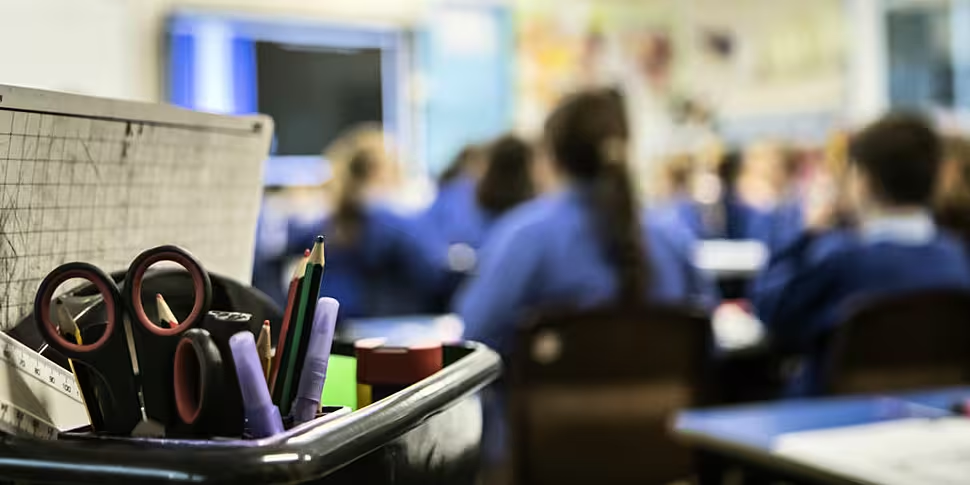An infectious diseases expert says 'micro-cocoons' should be set up in classrooms to help children get back to school.
Professor Sam McConkey is associate professor of international health tropical medicine at the Royal College of Surgeons in Ireland.
He says Irish schools should pilot different approaches to re-opening their doors from June.
It comes after World Health Organisation (WHO) Special Envoy on COVID-19, Professor David Nabarro, said earlier that it is now time to think about re-opening schools here.
Prof McConkey told Lunchtime Live that opening all schools from September would see a lag for many students.
"My view is that it's not going to happen as a sudden event over one day, and my fear is that if we just leave it all until September then we'll realise we can't just switch this on in the way that we switched it off - and it will take two or three months to gradually learn how to do it in a staged, pilot, gradualistic way.
"And then several of our children won't get back to school until November/December - which I feel is not good for them and not good for society.
"So my view is we could try in possibly July/August - I'm not sure anyone wants to go to school in July and August - but therefore the other alternative's to start experimenting and trying things in June.
"My view is that the Danes have done this, several other countries have their children back to school, in very specific restricted ways.
"We should be starting to pilot this".
In terms of social distancing, he said this could be a unique situation.
"I think we need to be a bit relaxed about what children do with each other.
"There is going to be some hugging and kissing and cheering and running together and all that."
"What you do is you do a micro-cocoon: you take a group of four or five children and you maybe divide the class of 10 or 12 into two, have a physical barrier between them and say 'within your little group you can do your thing'.
"And you play together outside, you socialise together inside.
"I know there'll be groups about 'they're not my friends and I want to be in another group' and all that - and that's something that just has to be sorted out".
"That appears to be what they've done in Denmark and that seems to be working safety in other countries".
He suggested a form of social partnership involving a negotiation between teachers groups, school owners, health and safety experts and parents representatives.
"I would like to see that our whole education system is back, if possible, in September.
"And to achieve all of our children back in education in September we need to start gradually and slowly with smaller numbers and with modified classrooms and modified ways of teaching earlier than that - otherwise they won't all be back on the 1st of September."
"This has to be a bit like our national five-stage plan every three weeks: this is best done, in my view, as a gradual step-wise manner.
"What we could do for example in two or three weeks in June [is] bring back maybe third, fourth, fifth and sixth class in primary school into all the classrooms.
"So we're the classrooms - junior infants, senior infants, first and second class - to spread out the children from the upper four years with the teachers maybe from junior infants teaching half of the 3rd year class.
"That allows us to double our teacher to pupil ratio."









